Tags: Genome
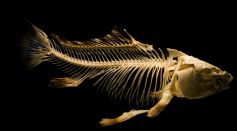
Phylogenomic Study Corrects Misclassified Black Bass Species Present in More Than 50 Countries

First-Ever Genetic Map of Chimpanzees Shows Traces of Their True Origin, Also Helps Anti-Trafficking
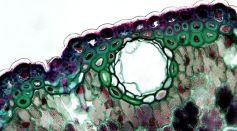
3D Structure of Sperm Cells Shows Genetic Development of Species and How Each is Given "IDs"
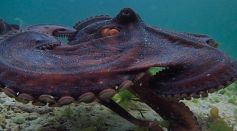
Squid and California Two-Spot Octopus Have Unique Genome Traits Enabling a Cephalopod to Break Away From Known Evolutionary Pattern, Studies Claim

Most Vicious Australian Snakes May Have Arrived by Sea Rather than Land, Study Says
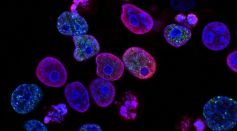
Novel Computational Approach Can Identify Genomic Safe Harbors for Therapeutic Genes To Treat Cancer

Cells in Down Syndrome Cases Have Senescence-Like Mechanism That Could Be Targeted for Future Treatment

Genomes of Roadside Weed Arabidopsis Thaliana Helps Scientist Understand Genetic Mutation
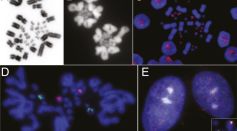
Microchromosomes Identified as Building Blocks of Every Vertebrate Animal; Junk DNA Specks More Essential than First Thought
Cellular Ancestry Identified Through Cell Mutation Profiles

Comparisons of Multiple Strains of Cacao Trees Provide Insights on Genomic Structural Variants Responsible for Plant Diversity

AI Innovation 'AlphaFold' May Lead to Human Proteome Revolution!

Experts Analyzed Genomes of Early Caucasian Human Without Using Skeletal Remains
Exception to Genetic Inheritance: One Worm Passes Biological Trait via Memory, Not Genes
18 Bat Species in Switzerland Found Harboring Viruses from 39 Viral Families Including COVID-19
New Plant Part Discovered: Scientists Studied Weed for More Than 100 Years

Superfast DNA Sequencing Tech Lands Finnish "Nobel" Victory to Two British Chemists

Genomes Discovery Changes View on Bronze Age Italy's Societal Organization and Ancestry

Comprehensive Genome Analysis Reveals Four Known Species of Giraffes
Ancient Genomes Examination Offer Insight on the Rise and Fall of Scythians
Most Popular

Can the World Run Out of Water? Water Scarcity Science and Climate Impact Explained

Solar Maximum 2026: Inside the Sunspot Cycle and Solar Activity Forecast Astronomers Are Watching

Volcanic Warning Signs: How Magma Movement Reveals Eruption Prediction Clues for Geologists

Could Technology Prevent Natural Disasters? How Disaster Prediction and Early Warning Systems Could Save Lives





